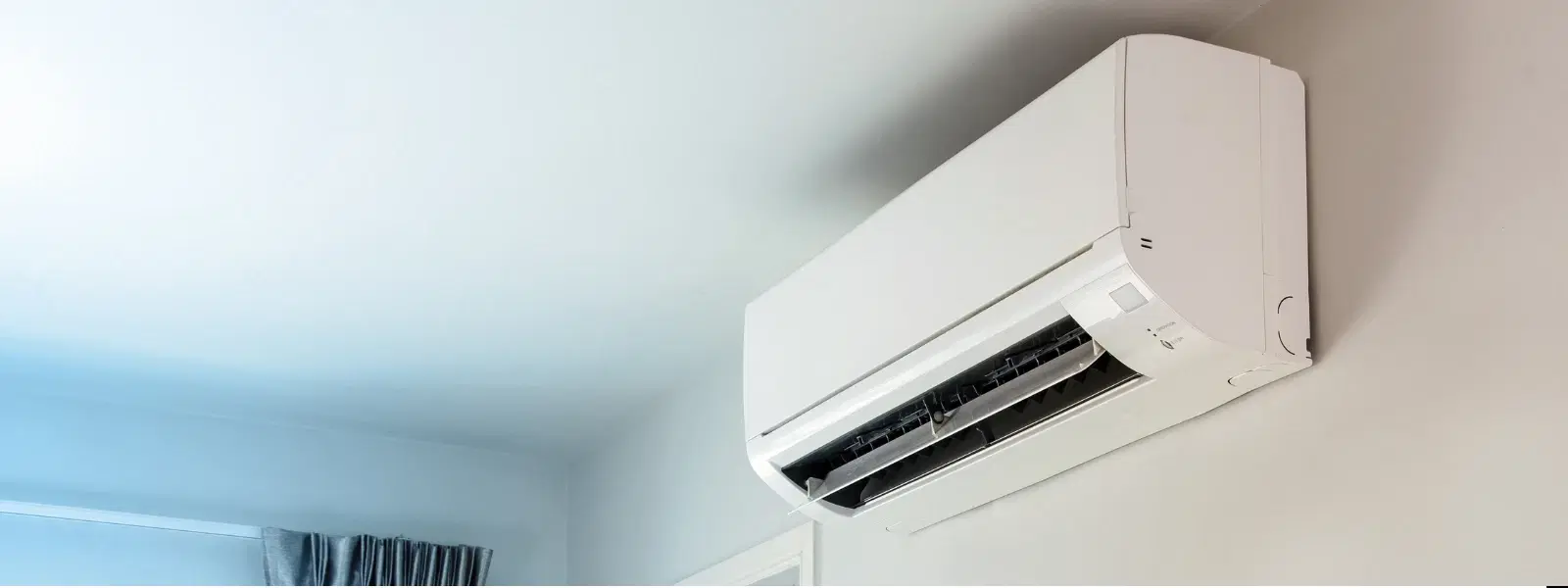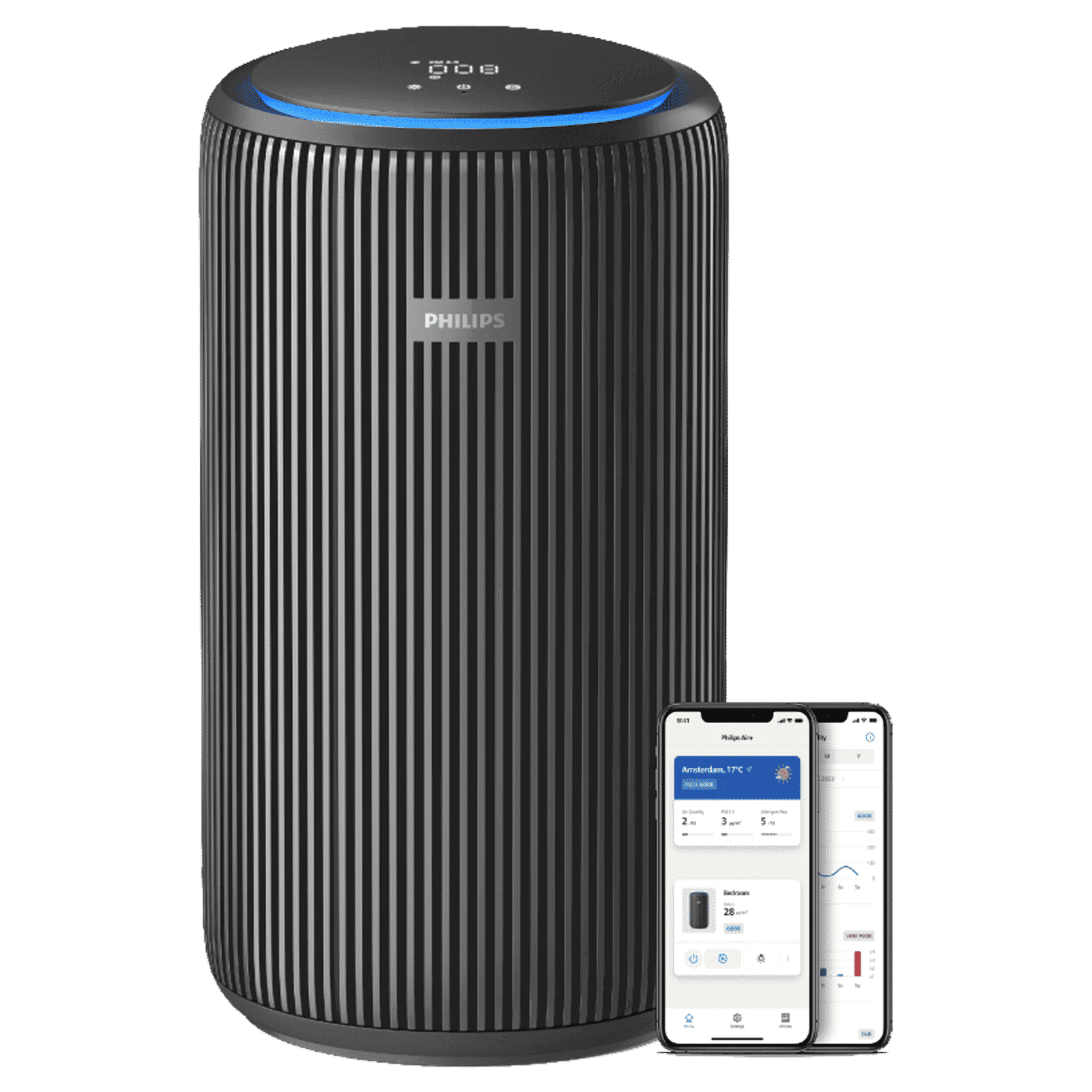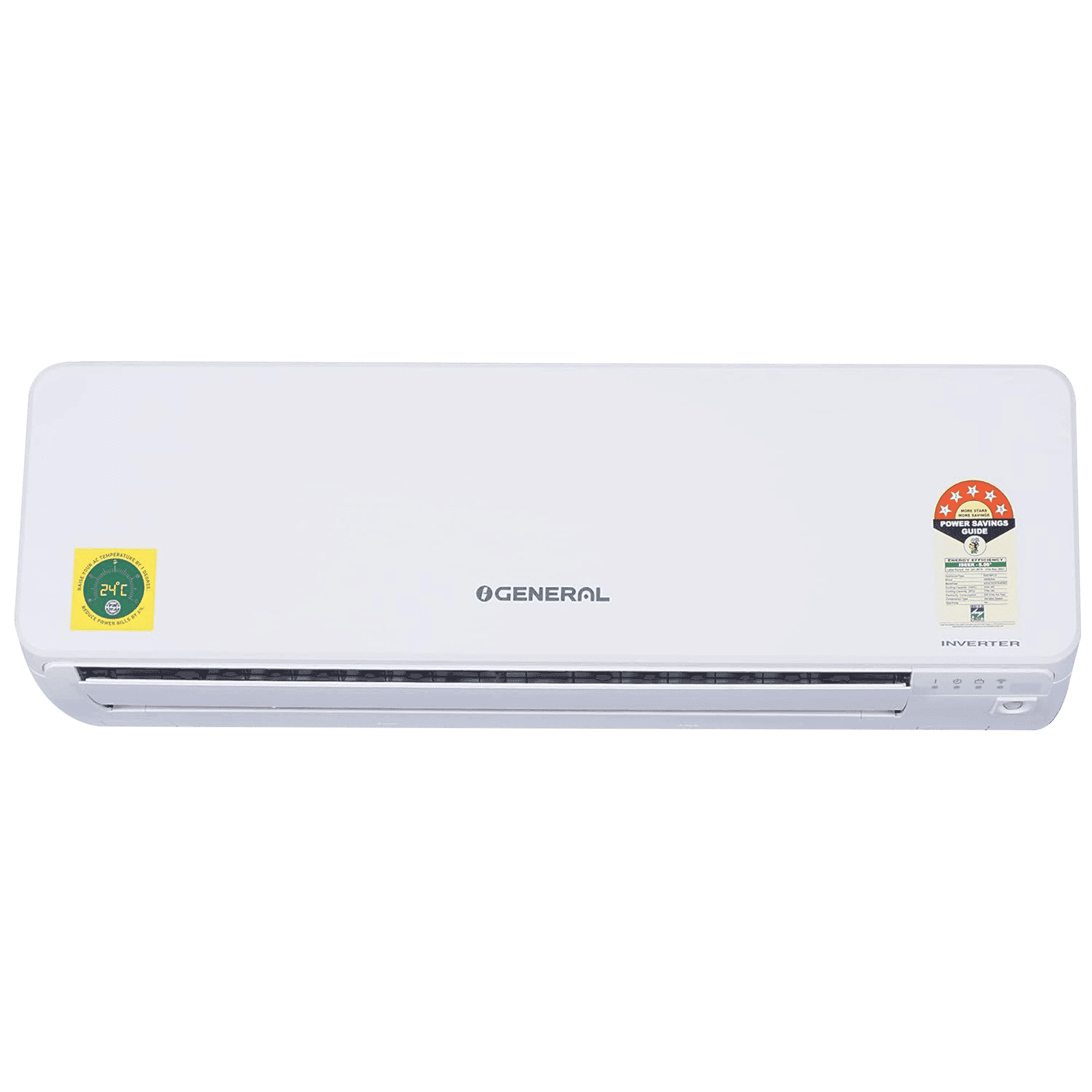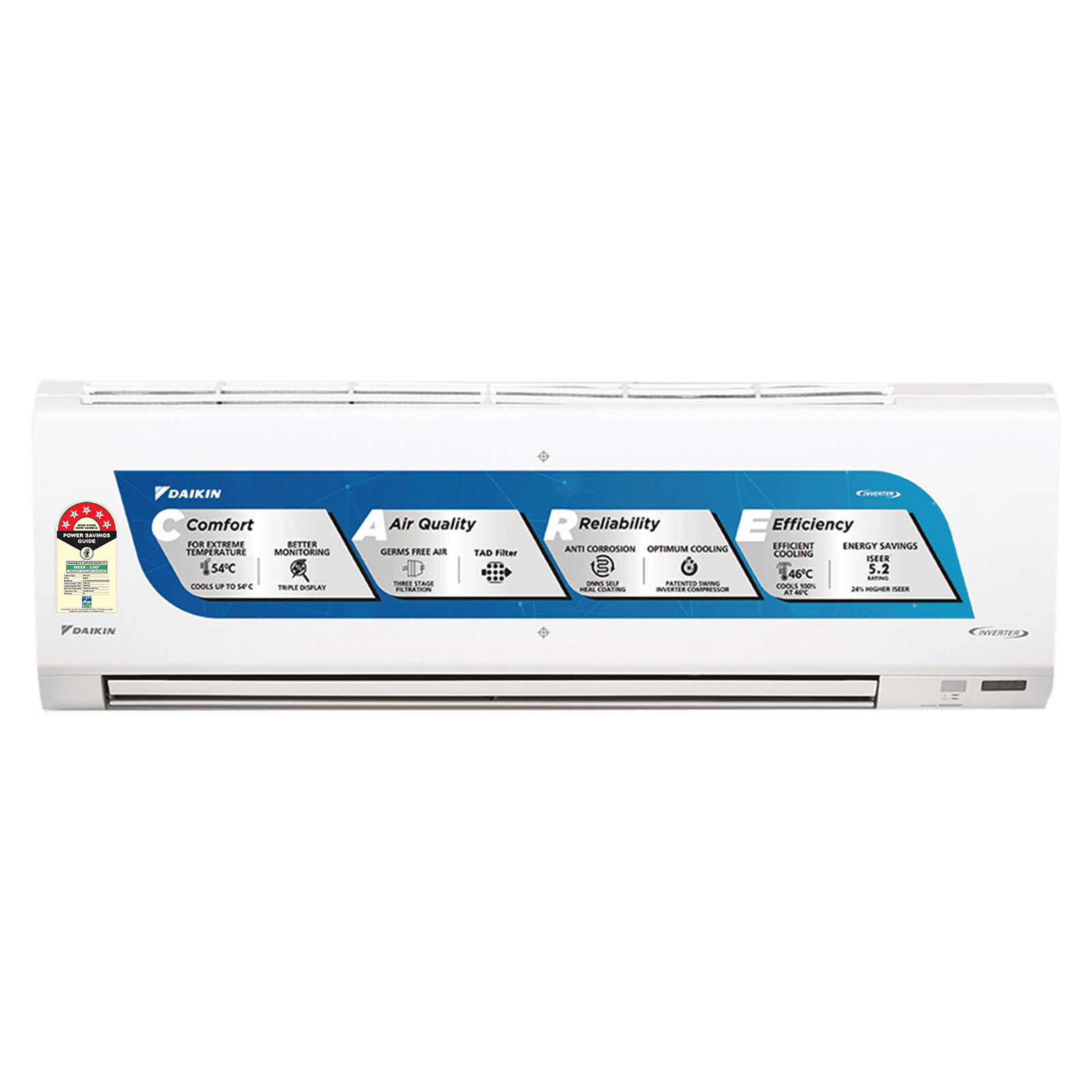
Home Appliances
•05 min read

Buy PHILIPS 3200 Series Smart Air Purifier with Remote Scheduling (App Control with Wi-Fi, Dark Slate) online at best prices from Croma. Check product details, reviews & more. Shop now!
Did you know that the efficiency of your air conditioning system heavily depends on the type of air filter you use? Selecting the right air filter in ac not only safeguards your cooling system but also improves indoor air quality and reduces energy consumption. This article explores how different types of air filters for ac can enhance performance, reduce repair costs, and contribute to a healthier living environment. By the end of this read, you'll be equipped with actionable insights on maintenance and replacement, making your home cooling system more efficient and cost-effective.
The primary function of an air filter in ac is to trap dust, debris, and allergens. This may seem basic, but in doing so, these filters not only protect your AC system from dust accumulation but also improve the overall indoor air quality. A clean air filter allows your system to operate optimally, preventing the build-up of dirt on coils and other critical components. This leads to improved airflow, less strain on the mechanical parts, and ultimately, extended service life.
AC air filters play a vital role beyond just protecting the internal mechanics of your system. They help in maintaining a healthier indoor environment by reducing allergens and pollutants, which is particularly beneficial for those with respiratory issues or allergies. A properly maintained filter results in reduced energy consumption since the system circulates air more freely. Remember, investing in regular ac air filter replacement and maintenance can significantly lower energy bills and prevent costly repairs.
Fiberglass filters are known for their affordability and basic filtration capability, making them a common choice for many households. Although they capture larger particles like dust and debris, they may not trap finer pollutants effectively. Consequently, while these filters offer an economical option, their efficiency and longevity are limited compared to newer alternatives.
Pleated filters are a step up from fiberglass alternatives and are widely recommended for residential systems. Due to their design, they have a greater surface area, allowing them to capture finer particles more efficiently. As a result, they offer a cost-effective solution that balances performance and price. Many families opt for pleated filters because they provide improved air quality without demanding a premium investment.
HEPA filters are renowned for their advanced filtration capabilities. Designed to trap extremely small particulates, these filters are well-suited for homes where severe allergies or medical needs are a concern. While HEPA filters tend to be more expensive, they provide superior comfort by ensuring the air is as clean and allergen-free as possible. For those wanting to invest in their indoor wellbeing, HEPA filters offer an unparalleled level of filtration excellence.
UV filters take air filtration a step further by incorporating ultraviolet light technology to kill bacteria, viruses, and mould spores. In addition to physical particulate capture, this type of filter enhances the overall air quality by preventing mold growth and other microbial contaminants. For households prioritising health and hygiene, UV filters help ensure the air circulating in the room is not just clean but also safe.

Buy O GENERAL 1 Ton 5 Star Inverter Split AC (Copper Condenser, PM 2.5 Filter, ASGG12CGTB-B) online at best prices from Croma. Check product details, reviews & more. Shop now!
When evaluating ac filter efficiency, it's important to understand the FPR (Filter Performance Rating) and the MERV (Minimum Efficiency Reporting Value). These ratings serve as benchmarks to determine how effectively a filter traps pollutants. Filters with higher MERV ratings capture finer particles and contribute to better indoor air quality. However, it is crucial to select a filter that meets your system’s requirements without overwhelming it. This balance ensures efficient performance and energy savings over time.
Selecting the best air filters for home ac setups often depends on individual needs. Consumers seeking a budget-friendly option might lean towards fiberglass filters, while those aiming for improved allergen control can opt for pleated or HEPA filters. Additionally, UV filters stand out for households looking for an extra layer of protection against microbial contaminants. Each option comes with its set of benefits and limitations, so balancing performance with your specific needs is key. With proper ac air filter maintenance tips, the lifespan of the air conditioner is maximised, ensuring efficient performance.
Pro Tip from Tata Neu: Regularly replacing or cleaning your AC air filter can extend the life of your system by up to 15%. Don’t underestimate the impact of a clean filter on your energy bills and indoor air quality.
Maintaining your ac system by cleaning filters is a straightforward process. Firstly, turn off your AC unit to ensure safety. Remove the filter gently and inspect it for significant dust build-up. If the filter is reusable, use a vacuum or wash it with mild detergent, making sure to remove all accumulated particles. After cleaning, allow the filter to dry completely before reinserting it. Following these steps not only ensures optimal ac filter efficiency but also prolongs the life of your unit.
Regular ac air filter replacement is crucial for continued performance. As a general guideline, you should change your air filter every 1-3 months, with the frequency depending on factors like the presence of pets, household allergies, and the environment. A dirty ac air filter can lead to reduced airflow and higher energy consumption. Keeping a consistent schedule can help maintain indoor air quality and prevent unnecessary strain on your energy bills.
Noticing a drop in system performance may point to dirty ac air filter symptoms. Common signs include reduced airflow, increased energy bills, and unusual odours from your unit. Ignoring these indicators can result in system inefficiencies and even damage over time. Addressing these symptoms promptly ensures the smooth operation of your air conditioner while safeguarding your indoor environment.

Buy DAIKIN Premium Series 1.5 Ton 5 Star Inverter Split AC (2024 Model, Copper Condenser, PM 2.5 Filter, ATKM50UV16VA) online at best prices from Croma. Check product details, reviews & more. Shop now!
Quality ac air filters play an indispensable role in reducing allergens, pollutants, and airborne bacteria in your home. By incorporating advanced filters into your AC system, you significantly boost your indoor air quality. It’s also beneficial to complement effective filters with proper home ventilation to capture any residual pollutants. This combination not only safeguards your health but also creates a more comfortable living space.
The right air filter in ac can help reduce strain on your system, leading to notable energy savings over time. With efficient filters, your AC unit works harder less often, which directly translates to lower electricity bills. For many households, investing in higher efficiency filters pays off by balancing improved performance with sustainable energy use. This not only supports a healthier environment but also contributes to long-term cost savings on utility bills.
Air filters should generally be changed every 1-3 months, depending on usage, filter type, and environmental factors like pets or dust levels.
An air filter traps dust, debris, and allergens, protecting the AC system and improving overall indoor air quality.
Neglecting filter replacement can lead to clogged filters, reduced airflow, higher energy bills, system damage, and compromised indoor air quality.
Turn off the system, remove the filter, vacuum or wash it depending on type, allow it to dry thoroughly, then reinstall it.
Pleated and HEPA filters offer excellent performance for most homes, providing a balance of efficiency and affordability.
Choosing the right air filter in ac is essential to ensuring the longevity and efficiency of your cooling system. By understanding the different types of filters and their specific benefits, you can make informed decisions to maintain a cleaner, healthier indoor environment. Regular ac air filter maintenance tips such as cleaning or replacing filters every few months go a long way in reducing energy consumption and preventing system damage. Keep an eye on dirty ac air filter symptoms and address them promptly to prevent costly repairs and diminished indoor air quality.
For tech enthusiasts, families, and professionals alike, the savings on energy bills paired with improved comfort and health benefits make investing in the right filter a smart choice. Whether you prefer basic fiberglass, versatile pleated, high-performance HEPA, or innovative UV filters, the decision largely depends on your specific needs and environmental conditions. Continue exploring home appliance options that align with your lifestyle, and enjoy the benefits of a reliable, efficiently run AC system.